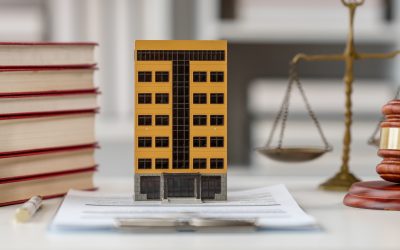The body of law which governs land use, zoning and land development in the State of New Jersey is known as the Municipal Land Use Law (MLUL). It can be found at New Jersey statutes annotated NJSA 40:55D-1 et seq. This is the body of law which establishes the substantive and procedural rules and regulations which guide property owners and municipalities in the regulation and development of land.
The MLUL provides for the creation of Master Plans and Zoning Ordinances, the establishment of Planning and Zoning Boards, the adoption of official maps, variances, subdivisions, site plans and other approvals and permits which we here at Wells, Jaworski & Liebman deal with every day.
A Maze
The MLUL sets up a statutory scheme, which can be more like a maze than a clear road, toward the ultimate goal of obtaining permits and approvals to build homes, commercial buildings, roads and infrastructure which support real estate developments. This set of laws also has procedural regulations with time limits for municipalities to act upon applications, and time limits for how long permits and approvals last before expiring if they are not used.
The expiration of permits and approvals can be devastating to a development project, and to the owners of that project. The costs and expenses incurred in connection with applying for and obtaining permits and approvals are known as “soft-costs”. Often, there is nothing soft about these costs which can be hundreds of thousands of dollars before a shovel is ever put into the ground. For much larger projects, the numbers are even higher.
Permit Extension
During the “great recession”, the Governor and the Legislature of the State of New Jersey, introduced the Permit Extension Act. Initially enacted in 2008, the Act was specifically designed to recognize the substantial efforts and costs incurred throughout the land permitting process, as well as the rippling harmful effect that the expiration of these permits would have upon the New Jersey economy. Property owners, banks, land buyers and sellers, developers, municipalities, contractors, building material suppliers, laborers, etc. were struggling to survive. This group and others would experience a collective body blow if permits and approvals were to expire as a result of the inability to use them because of the “great recession”.
The Permit Extension Act served to suspend the expiration of certain permits for a period of time which originally ran until July 31st of 2010. Permits that would have expired by that time, would not expire until six months thereafter. In 2012, the New Jersey Legislature extended the date of expiration through December 31st of 2014. With the sun setting on this extension and protection, the Governor and the State Legislature have acted once again to extend the time period through December 31, 2015. For permits which would have expired during this extended period, the new extension is limited to six months after the end of this extension period, or until June 30, 2016.
The MLUL itself, and the creation and continued extension of the Permit Extension Act, are indicative of the fact that a lot of the New Jersey economy is based upon real estate land use and development. Permits and approvals can be very difficult to obtain, and are very valuable once acquired. The MLUL protects permits and approvals for a period of one, two or three years at a time. The Permit Extension Act, as now further extended, protects these development rights for what could be up to ten years for certain approvals whichmayhavebeenissuedin2006,andmay not expire until 2016 under this Act. Now we need the economic climate to be strong enough for the land use development industry in New Jersey to blow the dust off of these permits and approvals, unwrap them, and use them to bring new real estate development throughout the state.
Stuart D. Liebman is the Managing Partner of WJ&L. He actively practices in the Land Use aand Real Estate Departments.
